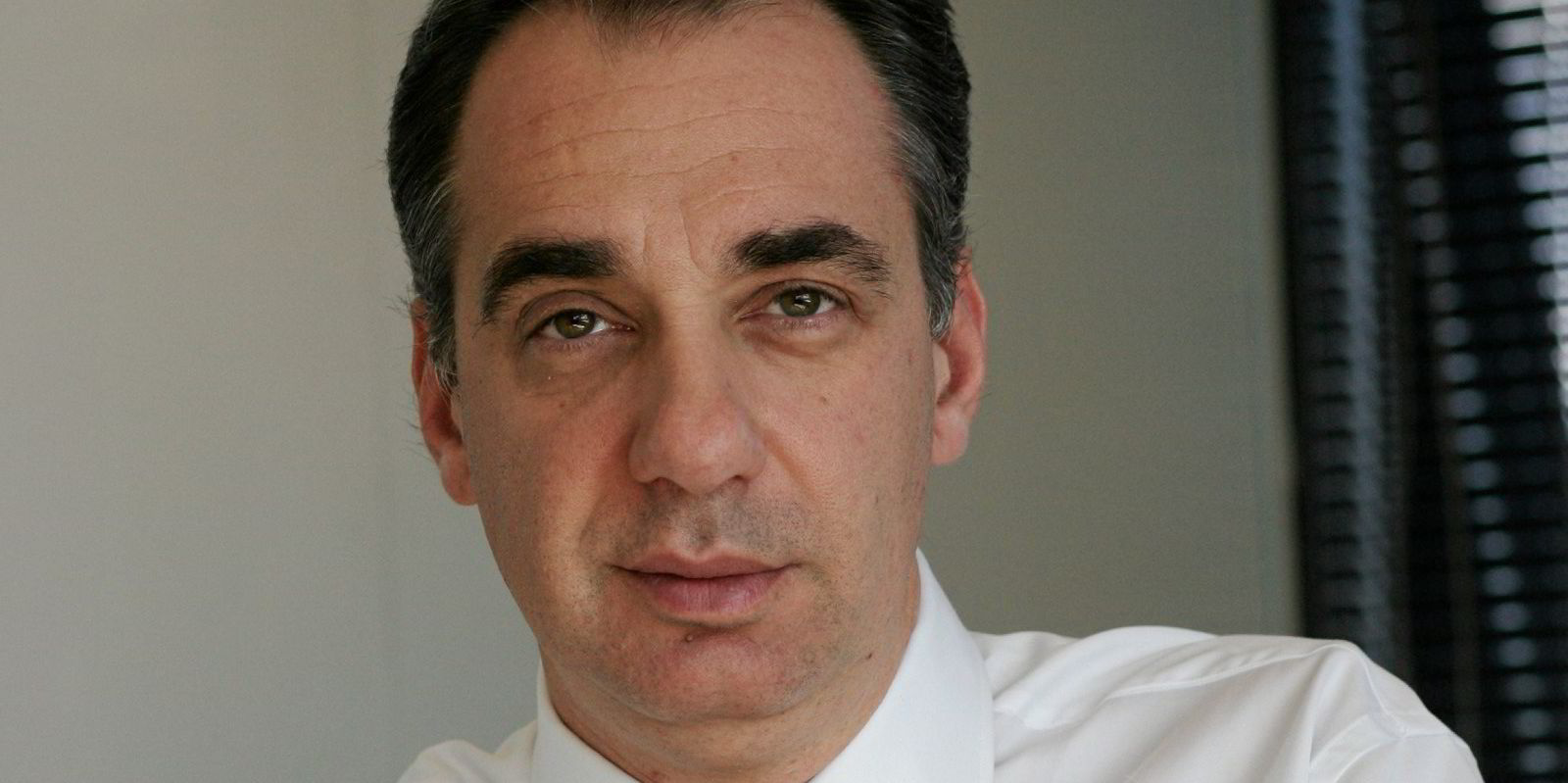Costamare, a major owner of container ships and bulkers, has reported a decrease in net income for a third consecutive quarter — even though the company maintains consistently high profitability and liquidity levels, enabling it to continue its fleet renewal, sustain dividends and engage in share buybacks.
Net income available to common shareholders dropped by about half year-on-year to $53.3m in the three months through September.
The US-listed owner and operator of about 170 ships reiterated on Wednesday its diversification strategy, which led it a couple of years ago to heavily invest in bulkers.
“We are committed long term to the [bulker] sector whose fundamentals we view positively,” the company’s chief financial officer Gregory Zikos said.
As a sign of that commitment, Costamare confirmed purchasing two Goodbulk capesizes in deals already reported by TradeWinds — the 176,000-dwt Enna (ex-Aquaenna) and the 179,800-dwt Dorado (ex-Aquarange, both built 2011).
On top of that, Costamare revealed itself as the buyer of Shoei Kisen’s 61,400-dwt Ultra Regina (renamed Arya, built 2013). TradeWinds reported in September that the Japanese company had committed the vessel to undisclosed buyers for about $20m.
Costamare said it has committed new loans worth $60m, as part of a “hunting license” for the acquisition of more bulkers and container ships. This brings Costamare’s war chest for such purchases to about $144m by December 2025.
On the other side of the S&P fence, Costamare disclosed on Wednesday it has agreed to sell two bulkers that are older than the ones it bought, as well as concluding the divestment of a pair of container ships.
The bulkers are the 55,700-dwt Peace (built 2006), which VesselsValue said fetched $11.6m in a deal with Vietnamese buyers, as well as the 55,700-dwt Pride (built 2006). Both ships are to be handed over to their new, undisclosed owners within the fourth quarter.
“The goal, ideally and in a reasonable amount of time, is to dispose of the smaller handies and replace them with younger and larger ships, mostly ultramaxes and capes,” Zikos said.
The two boxships Costamare disposed of are even older — the 2,474-teu Monemvasia (built 1998), as well as the 4,890-teu Oakland (built 2000). According to VesselsValue, the Oakland went to Chinese interests for $11.9m.
Zikos said on Wednesday that larger container ships “continue to enjoy a tight market, while smaller vessels experience deteriorating conditions”.
“Overall, the market outlook remains uncertain due to the large orderbook and insufficient vessel demolition,” the Greek manager added.
Growing platforms
Costamare has also been busy with its Costamare Bulkers (CBI) platform of chartered-in vessels, which it expanded by three ships in the third quarter to a total of 59 vessels.
The company has already invested in Costamare Bulkers the full $200m it said it committed to the venture when setting it up last year.
This does not mean, however, that Costamare is done expanding CBI yet.
“I don't think we have reached yet the desired size levels,” Zikos told analysts in a conference call later on Wednesday.
“Our goal is to grow this further, and we will, but we will be evaluating the timing on a quarter-by-quarter basis,” he added.
Unlike previous quarters, Costamare did not immediately provide an earnings breakdown between its container ship and bulker segments.
In the first half of the year, both its owned bulkers and its chartered-in bulkers had been a drag on profit. The company, however, said on Wednesday it can afford taking a long view of the market, given its secured, $2.7bn contracted revenues from container ships and the zero-debt, 100%-equity funded structure of CBI.
Neptune Maritime Leasing, another venture Costamare has invested in recently, has been “steadily growing on a prudent basis,” according to Zikos, with leasing transactions for 17 vessels so far and “a healthy pipeline” to follow over the coming quarters.
Costamare has invested about $74m in Neptune Maritime Leasing so far, out of a total maximum of $200m committed.
Ongoing profitability and ample liquidity, which the company puts at nearly $1bn, allowed Costamare to maintain its dividend unchanged at $0.115 per share.
The company also continued the share buyback programme it reactivated in the second quarter, making another $10m worth of buys since the last update it provided on 28 July. According to TradeWinds calculations, this brings the volume of shares that Costamare has bought back since 1 April to $60m, leaving another $30m in the pot for common stock buybacks.
According to Zikos, the buybacks are “highlighting our strong belief that the share price is heavily undervalued considering both the company’s performance and prospects”.





